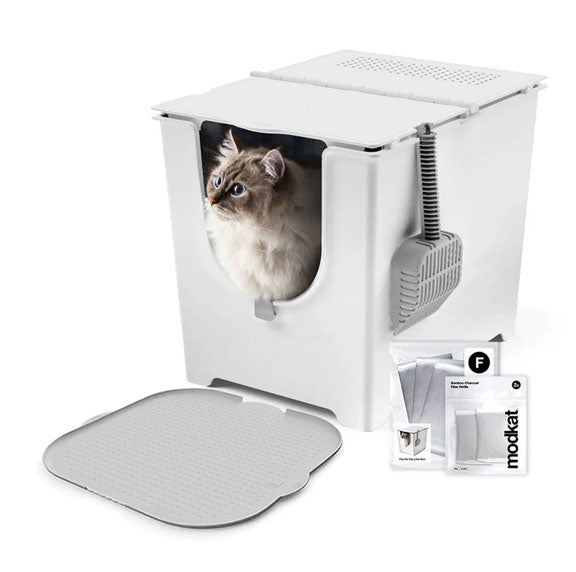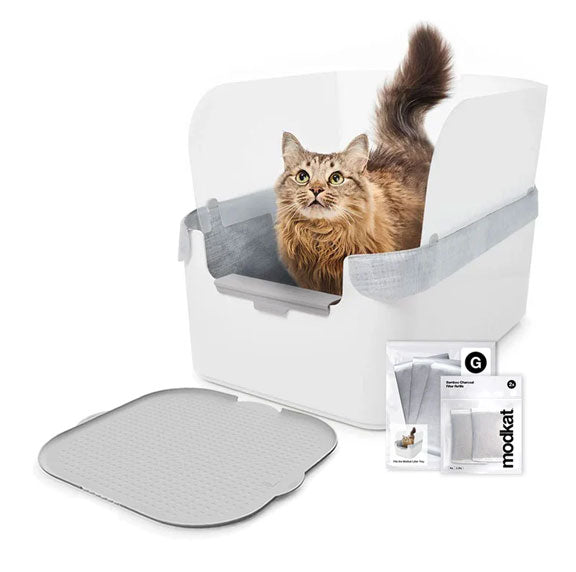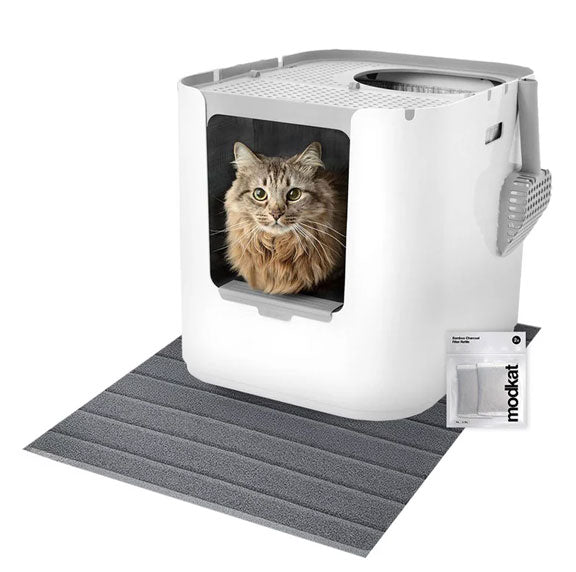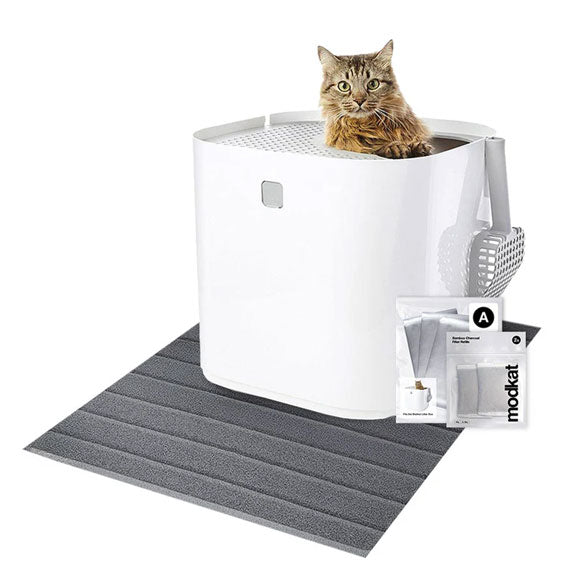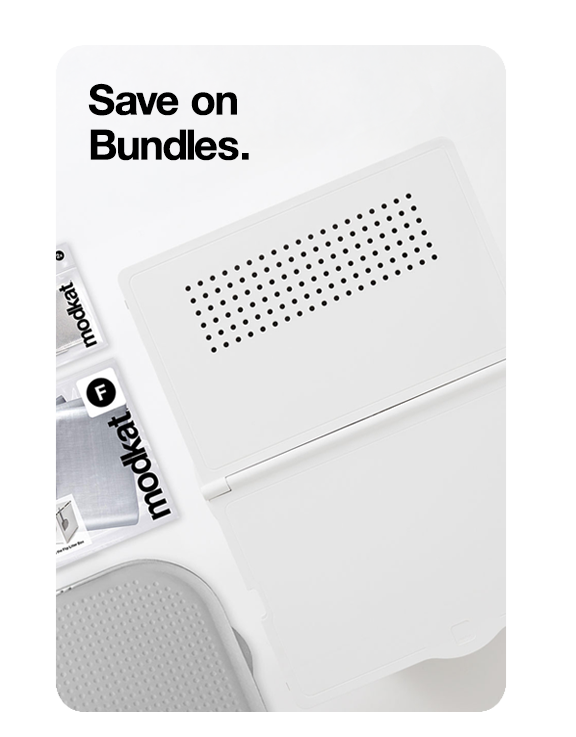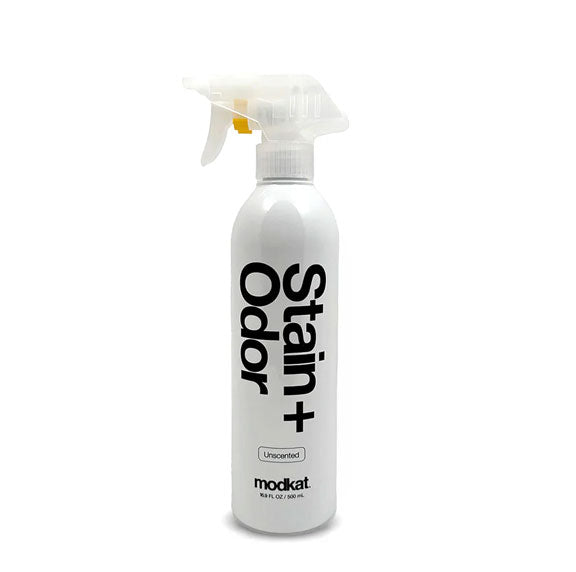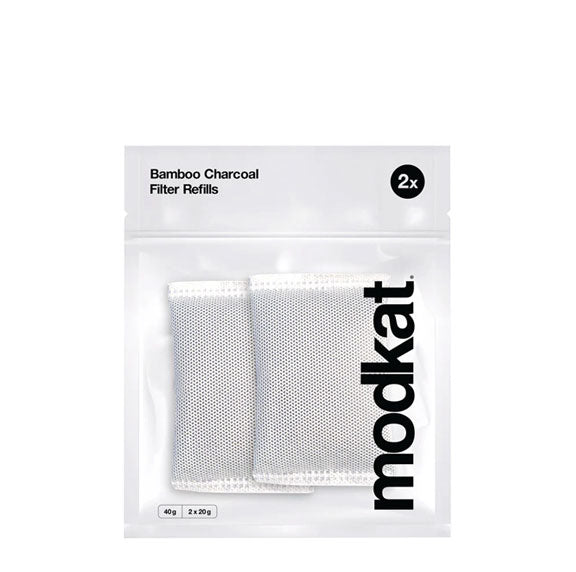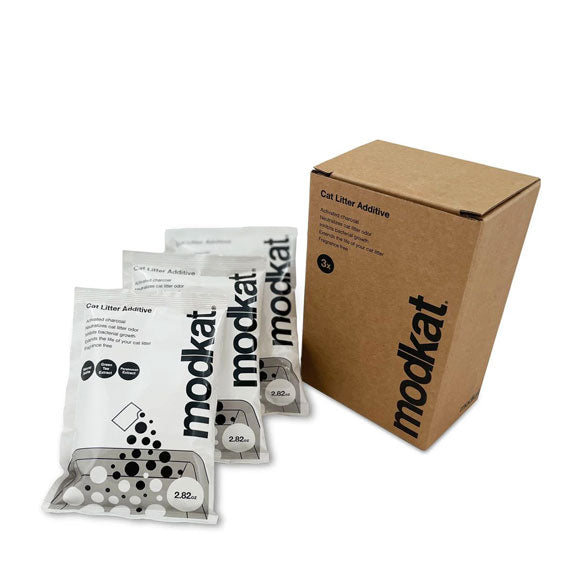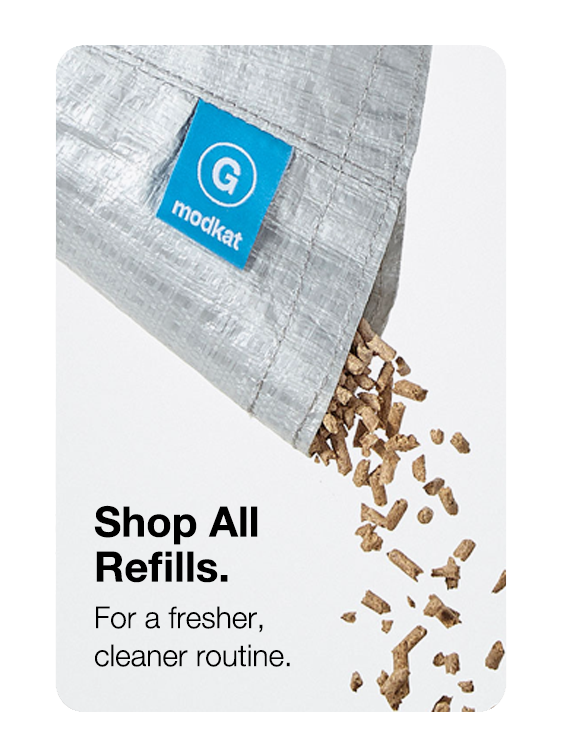Litter Boxes
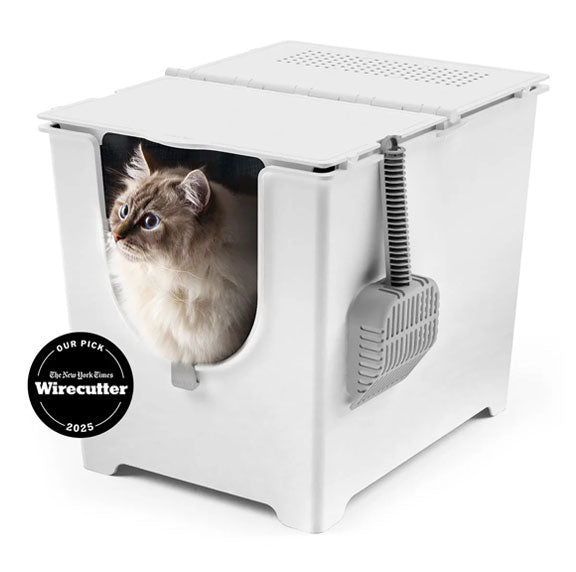
Modkat Flip
Front-Entry Litter Box
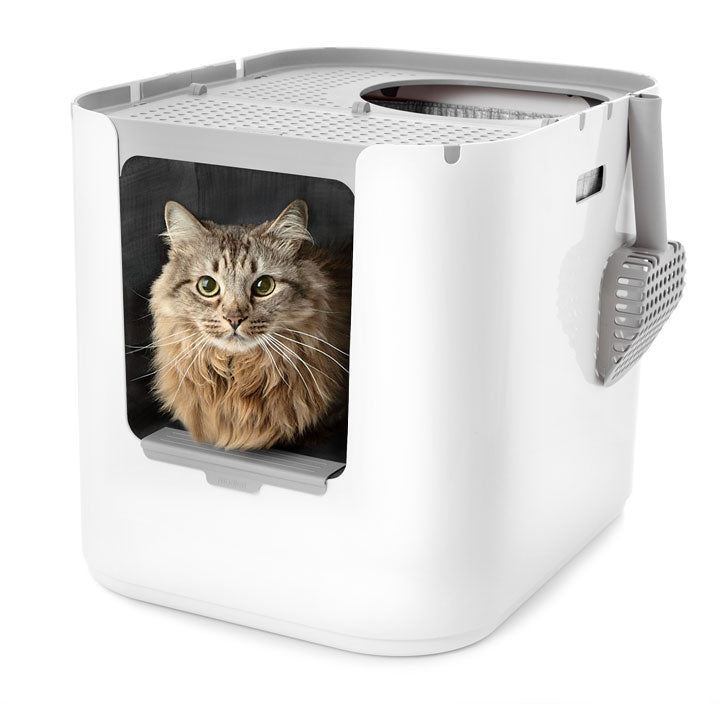
Modkat XL
Front/Top-Entry Litter Box
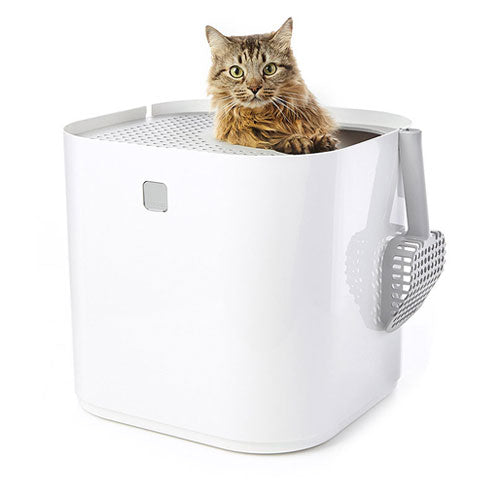
Modkat
Top-Entry Litter Box
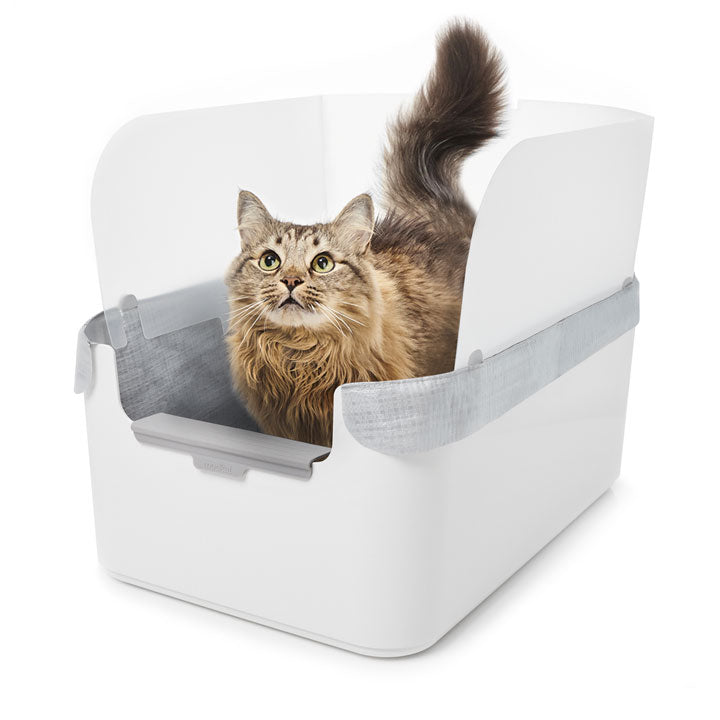
Modkat Tray
Open Litter Box
Starter Kits
Essentials
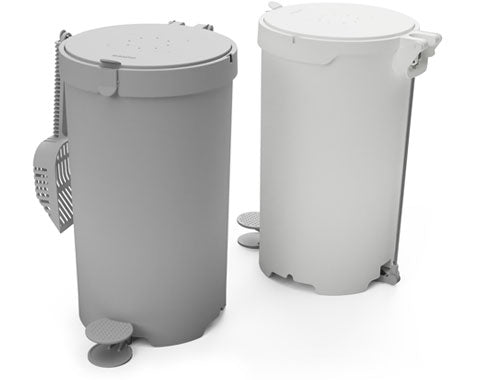
Litter Keeper
Two colors
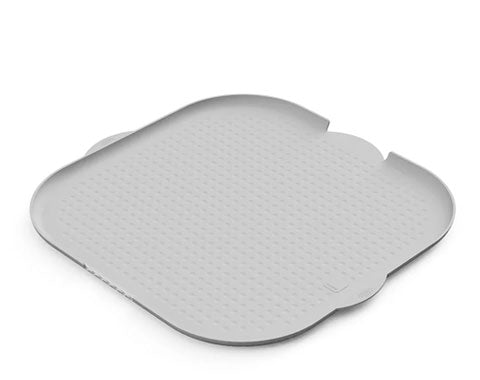
Litter Mats
Multiple styles, colors & sizes
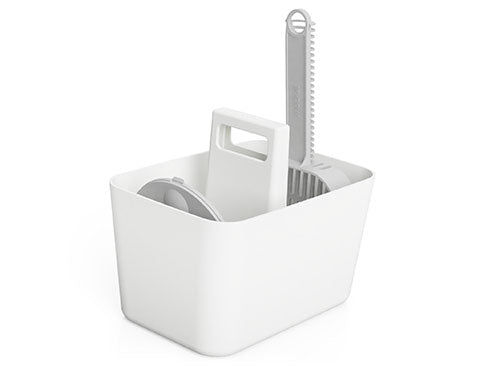
Tidy-Up Kit
Scoop holder & dustpan

Lounge + Play
Scratchers & toys
Refills
Add description, images, menus and links to your mega menu
A column with no settings can be used as a spacer
Link to your collections, sales and even external links
Add up to five columns
Add description, images, menus and links to your mega menu
A column with no settings can be used as a spacer
Link to your collections, sales and even external links
Add up to five columns
7 tips to make a stinky litter box smell fresh & clean.
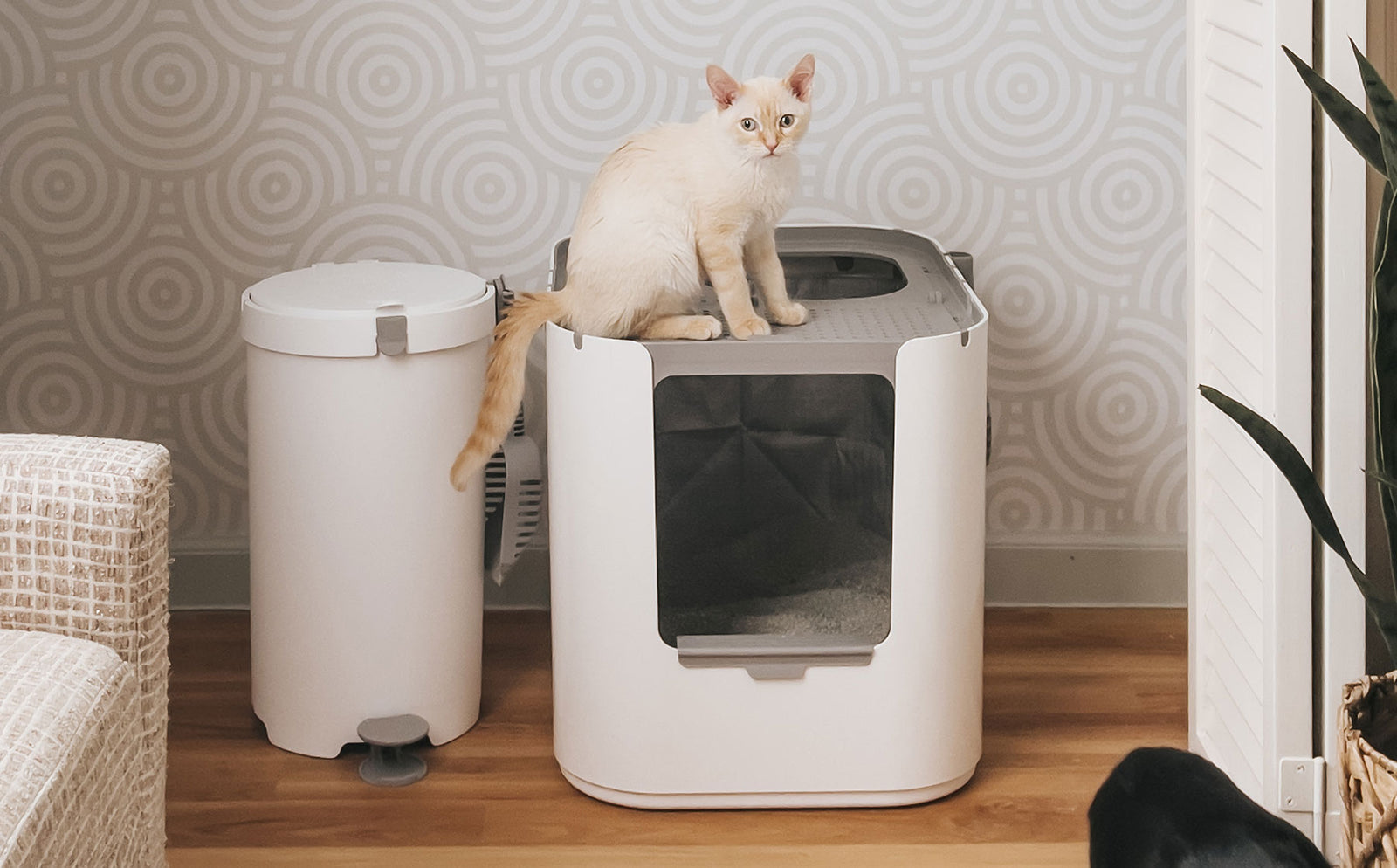
Pic: DreamgreenDIY
It's essential to keep your cat's litter box clean and odor-free. A smelly litter box can indicate health issues in your cat or hygiene problems in your home.
It's crucial to provide the same level of care to your cat's litter box as you would to your other bathrooms, if not more. This is because a cat's sense of smell is 14 times stronger than ours. Even if you can't notice any odor, it could still bother your cat and lead them to avoid the litter box.
Approximately 10% of cats suddenly stop using their litter boxes, and one of the reasons for this could be unpleasant odors from the litter box. Here are seven tips to prevent your litter box from becoming smelly:
1. Choose the right brand of kitty litter.
There are numerous options available, such as corn, wheat, clay, grass, and paper litter. To find the best litter for odor control, you can conduct an experiment. Purchase small bags of different litter types, put a cup of each into separate containers, add ¼ cup of ammonia to each, and let them sit for several hours. Then, sniff each container to determine the best litter for odor control. It's important to introduce a new litter slowly by mixing it with the old one for a few days to help your cat get used to the new scent.
2. Use baking soda.
Baking soda is a safe and natural deodorizer for litter boxes and is non-toxic for cats. Mixing baking soda with the litter can help absorb pet urine odors. However, it's essential to maintain a consistent cleaning schedule, including scooping the litter, refreshing it, and washing the litter box, even if you use baking soda. Avoid scented baking soda options, as cats generally dislike artificial scents.
3. Use charcoal filters to minimize litter box odors.
Charcoal filters are environmentally friendly and can help remove stubborn cat odors. Like baking soda, charcoal is an affordable, all-natural, and 100% non-toxic odor-control system. Modkat sells an odor control kit that includes two bamboo charcoal filters. Bamboo charcoal lasts longer and is more effective at controlling litter box odor than other activated charcoals. Also, bamboo is a renewable resource. Our bamboo filters last for up to three months. After that, you can recharge your filter by refreshing it with some time in the sun.
4. Avoid floral sprays, scented plug-ins, and potpourri.
Many scented air fresheners smell great to humans but can be unpleasant for cats. Some fragrant household products can also harm cats. For a more cat-friendly option, consider an all-natural cat-odor filter. If you prefer a spicy, tangy smell, try a DIY alternative to toxic air fresheners.
5. Maintain good litter box hygiene.
Follow this cleaning schedule:
- Daily: Scoop the cat's box. Clumping litter can make this task easier.
- Weekly: Replace the litter entirely. Dump out the old and add 3-4 inches of the new.
- Weekly: Wash the box with warm water and mild, unscented dish soap.
- Quarterly: Recharge and replace your cat odor filter. If your box tends to hold smells over time, you may also want to spray the interior with an antibacterial solution that's safe for cats. Keeping your litter box clean could be the most important step toward making your kitty litter smell better.
6. Make sure to place your cat's litter box in a well-ventilated area.
Some cat parents hide the box in dark, out-of-the-way places like a garage or basement, but this is not a good idea. Shy cats may not like going into dark or isolated spots to do their business, and a dominant cat can take advantage of the isolation to start a fight or prevent a smaller cat from accessing the box. If you place the box where you can't smell it, you might forget to clean it regularly. Cat behaviorist Jackson Galaxy recommends keeping litter boxes in socially appropriate areas such as the living room or a guest bedroom, as this makes them less likely to be forgotten. Since the box will be in the open, choose a sleek litter box that won't attract attention from nosy guests.
7. Discuss your cat's diet with your vet.
Particularly strong-smelling feces could indicate a serious problem, so asking your veterinarian or a feline nutritionist for advice on a safe and healthy dietary change could be the effective odor-control solution you need. Keeping your home and your litter box clean and fresh is important for both your cat's health and your peace of mind.
Maintaining a clean and odor-free litter box can help your cat eliminate it in the appropriate place, which helps keep it healthy and happy. If you're looking to freshen up your cat's litter area, you can shop the Modkat litter boxes and accessories today!
“It looks nicer than any other hooded or open option we considered.”

Categories
Meow from Brooklyn.
Sign up and get early access to product drops, exclusive offers, and the occasional cat meme.
Similar products related to this blog:
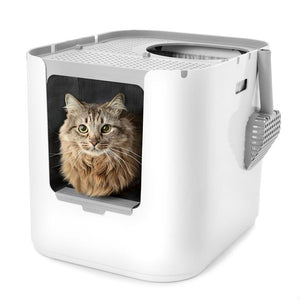
"It looks nicer than any other hooded or open option we considered."

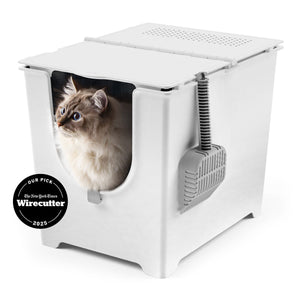
"This litter box keeps everything in, nothing gets out the sides."
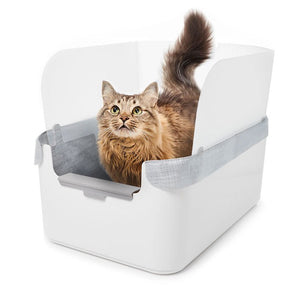
"My beautiful ragdoll cat and I both love the new Modkat Litter tray!"

